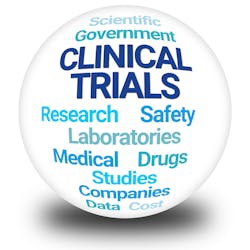Gottlieb Touches on EHRs, Artificial Intelligence in First Public Speech Since FDA Resignation
In his first public speech since stepping down as Food and Drug Administration (FDA), Scott Gottlieb, M.D., discussed at the 16th annual World Health Care Congress how technologies such as electronic health records (EHRs) and artificial intelligence (AI) will open up new opportunities for the federal agency.
Dr. Gottlieb, who served as FDA commissioner from May 2017 until just recently stepping down earlier this month, reflected on his time as chief of the FDA, where he led a $5 billion agency that regulates drugs, medical devices, cosmetics, food and other consumer products. “We have a lot of new opportunities in front of us in terms of new fields of technology that we will need to create modern rules for how they’ll be regulated, and I hope that will drive change,” said Gottlieb.
During his short speech at the conference, Gottlieb touched on a number of healthcare-related areas, including EHRs and analytical tools. On EHRs, the former FDA commissioner noted that for the first time, FDA has made a significant financial investment in EHR data as part of 2019 budget and 2020 budget requests to Congress. The hope, he said, is to pull EHR clinical data for pre-market evidence generation, making it possible for the FDA to use this data in clearance decisions, while also giving the federal agency the ability to conduct post-marketing surveillance on the technology.
Last July, the FDA finalized guidance on using EHR data in clinical trials. “In an effort to modernize and streamline clinical investigations, the goals of the guidance are to facilitate the use of EHR data in clinical investigations and to promote the interoperability of EHR and electronic data capture (EDC) systems,” according to the 2018 FDA document.
Gottlieb made the health IT news cycle earlier this month when he publicly commented on the “Botched Operation” report put out in March by Kaiser Health News and Fortune that examined the numerous reports and anecdotes of how EHRs—despite the massive financial investment into them by the government—have been linked to patient deaths, injuries and various other safety issues.
In an interview with KHN following the report, Gottlieb emphasized the need for tighter scrutiny of EHR systems. While the FDA does not have oversight over EHRs, as they are not considered medical devices, Gottlieb remarked in that interview that health IT vendors who develop EHRs could add new functions that would improve the systems, “but they have been reluctant to do so because they didn’t want their products to fall under FDA jurisdiction.”
The Office of the National Coordinator for Health IT (ONC), the health IT arm of the government, has taken some positive steps in the direction of tighter oversight, particularly with the recent introduction of a proposed regulation that would prevent gag clauses in EHR vendor contracts, which prevent end-user providers from disclosing system errors. The 21st Century Cures Act has further required ONC to seek public feedback on the development of an EHR Reporting Program, which is intended to increase transparency and awareness of the usability of different products.
Speaking about artificial intelligence at the World Health Care Congress, Gottlieb noted that the FDA cannot regulate it in a typical sense since AI is a self-learning system that makes mistakes and learns from those mistakes to improve the next time. As such, FDA can’t do pre-market testing as it normally does; rather, it compares the tool’s validity and utility against publicly available databases to determine if it is sufficient for demonstrating the effectiveness that’s needed for approval, Gottlieb explained.
Gottlieb is currently a resident fellow at the think tank American Enterprise Institute (AEI), an organization he first joined nearly 20 years ago.



